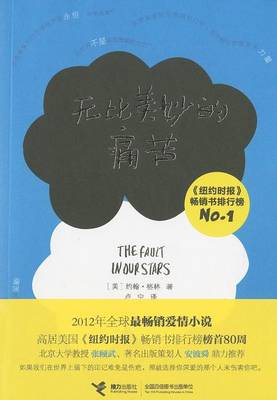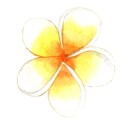
girlinthepages
Written on Jun 13, 2014
I'll admit, this was my first (full) experience with John Green. I read about half of An Abundance of Katherines before I was forced to return it to the library. I was kind of anticipating him to be the Nicholas Sparks of YA, because literally almost everyone I talked to told me to keep a box of tissues nearby while I read (which I did, not in preparation for an emotional breakdown, but rather because I am a slave to summertime allergies). I was very pleasantly surprised to learn that Green had a rather snarky narrative voice that I instantly liked, and I really, really enjoyed reading from Hazel's perspective. She's very perceptive and very aware of her situation with cancer and of her impact on others, and it's interesting to see how she reconciles her impending death with the way she lives her life.
Unfortunately, I did not find Augustus a character that I liked nearly as much as Hazel. I just didn't connect with him, and seeing as the narrative was heavily focused on the love story between these two characters, it was hard for me to fall in love with the book when I only liked half of the couple. The pacing of the book also felt off to me, and it made the romance seem rushed, and I had only perceived a few days or weeks to have passed when the narrative had really spanned months, leading me to feel like I was reading "insta-love." Thankfully I appreciated Green's secondary characters and how they all had their own stories and fears and private wars they were battling and their interactions with Hazel (and Gus) helped to draw me in and keep me engaged with the story even when I wasn't liking the romance. Van Houten was a deliciously obnoxious character and his striking comments and behavior continued to engage me throughout the book, as did the personal struggles of Isaac and Hazel's parents.
What kept me reading throughout the book was not the romance, but rather the relationships with cancer and how it was dealt with by those with it and those who loved those with it. I was simultaneously fixated and horrified reading about the decline of those with cancer and how "the final days" are for both patients and loved ones. I suppose you could say that while I didn't like Green's depiction of romance I liked his perspective, fascinated by the raw yet controlled and accepting way that Hazel interacts with a disease that is caused by a mutation of her own cells, that is a side effect of being herself.
What I Liked:
Hazel's narrative voice
The humor laced throughout the narrative
The strong peripheral characters who have a big impact
The candid way topics of death and the afterlife are handled
What I Didn't Care For:
Gus (sorry guys, his character just didn't charm me). His character was just too over the top for me, and he monologued a lot. Also, his constant search for metaphors drove me a little crazy.
"Okay? Okay"-- some of the quotes seemed a little cheesy for me.
The unclear pacing in the first half of the novel
The absolutely insane hype surrounding the book! It's almost like you would have to read it in a vacuum to really give it a fair shot.
Favorite Quotes: So I thought a lot of the traditionally famous quotes from the novel were a bit mediocre, and it was some of the less marketed ones that I really liked!
"Sometimes, you read a book and it fills you with this weird evangelical zeal, and you become convinced that the shattered world will never be put back together unless and until all living humans read the book.” (33)
“Some tourists think Amsterdam is a city of sin, but in truth it is a city of freedom. And in freedom, most people find sin.”(157)
"Like all sick children...you say you don't want pity, but your very existence depends upon it." (192)
"There is no honor in dying of." (217)
Overall: I was pleasantly surprised by Green's sassy narrative voice and his ability to balance humor and darkness, and I really enjoyed Hazel as a character and her journey with cancer. However, I wish this book had been less of a romance and more about the journey of teenagers with their illnesses instead, as I don't like Green's depiction of romance but I like his candid portrayal of teenagers faced with the issue of their own mortality. It was an engaging read, but I've read other books about the disease that left me much more emotionally gutted, such as My Sister's Keeper by Jodi Picoult. Would I recommend it? Yes, it's worth reading, but beware the hype!



